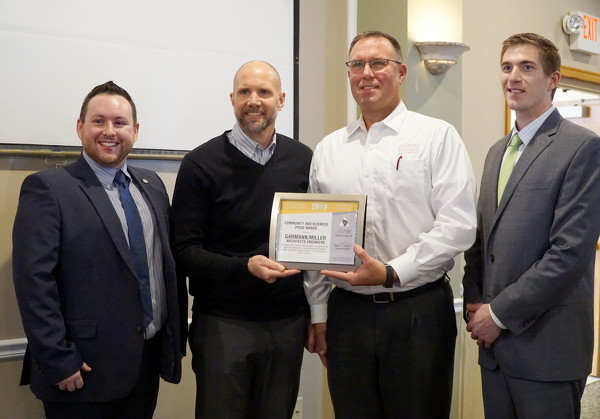Wednesday, March 6th, 2019
Joining ag district helps protect farmers
Lake Erie Bill of Rights could affect farmers with land in lake's watershed
By William Kincaid
CELINA - Ohio Department of Agriculture Director Dorothy Pelanda on Monday said certain practices may protect farmers against potential lawsuits that could arise from the Lake Erie Bill of Rights.
One of those practices - designating farmland as an agricultural district - has taken off locally, with more than 40 landowners recently filing applications with the Mercer County auditor's office, chief deputy auditor Sara Scott told the newspaper on Tuesday.
Voters in Toledo recently approved an unusual ballot measure that seeks to add new protections for Lake Erie by allowing people to file lawsuits on its behalf.
A coalition of environmental groups supports the Bill of Rights because of concerns about how toxic algal blooms in the lake's western basin have become a persistent threat to drinking water and the lake's overall health. Much of the pollution feeding the algae is runoff from fertilizer that flows into the lake through tributaries.
Farmers are concerned the measure opens the door for lawsuits that would force them to make costly changes to the way they farm. A recently filed federal lawsuit claims the measure violates farmers' constitutional rights and is unenforceable because it is too vague. It also seeks to stop the new law from being enforced.
"Farmers, as of this point, have what's called affirmative defenses created in law that can defeat these kinds of lawsuits," Pelanda said while addressing a crowd at the Mercer County Central Services Building in Celina.
Types of affirmative defenses include placing farmland into an agricultural district, engaging in soil testing and having nutrient-management plans.
"Whether or not other communities, other cities, will also now undertake to declare a bill of rights … it will remain to be seen," she said. "But it's certainly something that I want farmers to be aware of and to understand their rights, their defenses and their protections."
"We have available agricultural districts that any of our local farmers can sign up for," Mercer County Auditor Randy Grapner told the newspaper.
Agricultural districts can, among other things, offer legal protection for any generally accepted agricultural practice in the event of a nuisance lawsuit filed against the farming operation, according to a information provided by Grapner.
Any owner of land used for agricultural production may file an application to have it placed in an agricultural district. Those interested can apply in person at the office or have the application mailed to them - both free of charge.
If the total amount of land in question is less than 10 acres, the applicant must submit evidence that the activities conducted on the land have produced an average yearly gross income of at least $2,500 over the three years immediately preceding the year in which application is made or that the land will produce an anticipated annual gross income of that amount, according to the county application.
Also, if the land in question lies within a municipal corporation limit or if an annexation petition that includes the land has been filed with county commissioners, the application must also be filed with the clerk of the municipality's legislative body. The legislative body is required to conduct a public hearing on the application within 30 days after the application has been filed.
Agricultural districts last for five years and can be renewed.
Pelanda said she believes the Lake Erie Bill of Rights will be wrapped up in litigation for years to come.
Legal experts have raised doubts about whether the law can survive a court challenge.
Case Western Reserve University law professor Jonathan Adler told cleveland.com the law oversteps the city's jurisdiction because Lake Erie extends far beyond Toledo.
"The people of one city don't get to declare how a given resource could be used or protected when that resource is shared with lots of other jurisdictions," Adler said.
Markie Miller, an organizer for Toledoans for Safe Water, told The Blade that her group is prepared for legal challenges.
"We expect this effort to bring about discussions and challenges but hopefully ones inspired by the desire to create positive and meaningful changes," she said.
Just 9 percent of Toledo's eligible voters cast ballots in the special election in which the Lake Erie Bill of Rights was approved.
- The Associated Press contributed to this story.

